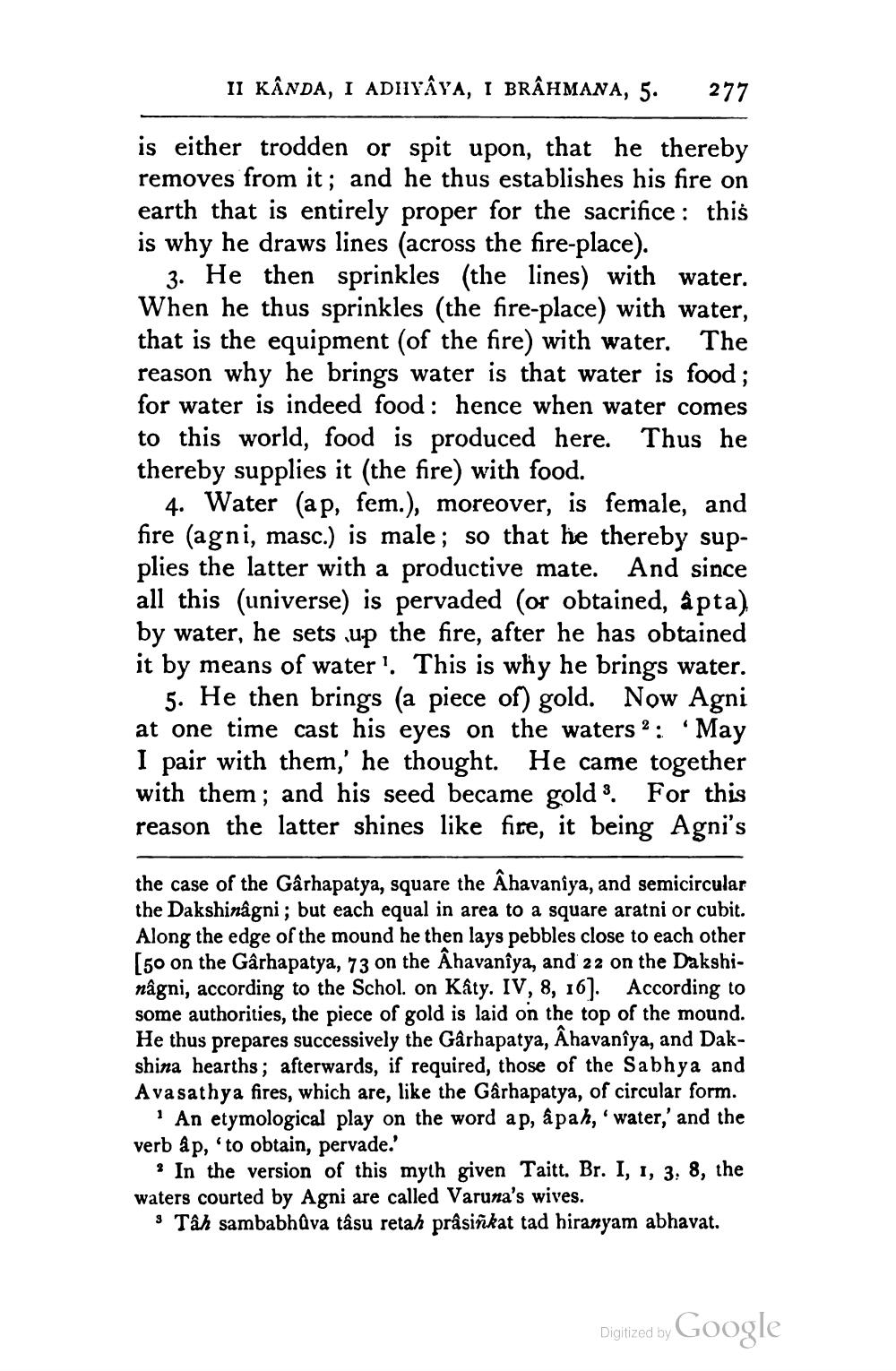________________
II KÂNDA, I ADIIYÂYA, I BRÂHMANA, 5.
277
is either trodden or spit upon, that he thereby removes from it; and he thus establishes his fire on earth that is entirely proper for the sacrifice : this is why he draws lines (across the fire-place).
3. He then sprinkles (the lines) with water. When he thus sprinkles (the fire-place) with water, that is the equipment (of the fire) with water. The reason why he brings water is that water is food; for water is indeed food: hence when water comes to this world, food is produced here. Thus he thereby supplies it (the fire) with food.
4. Water (ap, fem.), moreover, is female, and fire (agni, masc.) is male; so that he thereby supplies the latter with a productive mate. And since all this (universe) is pervaded (or obtained, apta) by water, he sets up the fire, after he has obtained it by means of water. This is why he brings water.
5. He then brings (a piece of) gold. Now Agni at one time cast his eyes on the waters 2: May I pair with them,' he thought. He came together with them; and his seed became gold 3. For this reason the latter shines like fire, it being Agni's
the case of the Gârhapatya, square the Âhavaniya, and semicircular the Dakshinagni; but each equal in area to a square aratni or cubit. Along the edge of the mound he then lays pebbles close to each other (50 on the Gârhapatya, 73 on the Ahavanîya, and 22 on the Dakshinagni, according to the Schol. on Kâty. IV, 8, 16). According to some authorities, the piece of gold is laid on the top of the mound. He thus prepares successively the Gârhapatya, Ahavanîya, and Dakshina hearths; afterwards, if required, those of the Sabhya and Ava sathya fires, which are, like the Garhapatya, of circular form.
An etymological play on the word ap, âpah, water,' and the verb åp, 'to obtain, pervade.'
* In the version of this myth given Taitt. Br. I, 1, 3, 8, the waters courted by Agni are called Varuna's wives.
Tâh sambabhůva tâsu retah prâsiñkat tad hiranyam abhavat.
Digitized by Google




